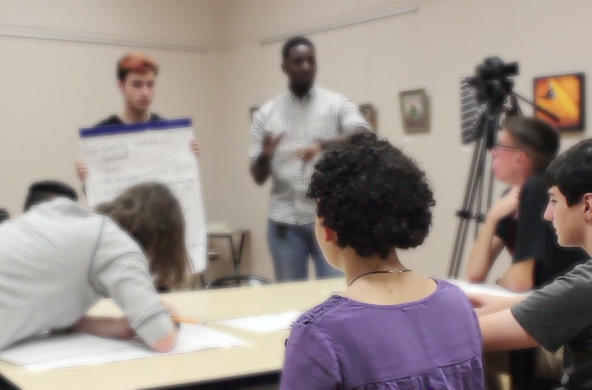The Urban Water Innovation Network (UWIN) links researchers across the United States who represent a range of academic disciplines and are intellectually connected by a common interest in solving urban water issues.
In many cities, water-related challenges such as potable water provision, wastewater disposal, rainwater capture and reuse, coastal flood management, and storm water processing are handled by separate agencies and are approached as isolated issues. UWIN’s goal is to identify how these processes are related, develop context-appropriate water management strategies, and facilitate connections between researchers and management agencies to implement an integrated approach to urban water management.
Over 100 researchers are currently involved in the Network, representing six densely-populated urban regions throughout the US. These research 'hubs' include: the Arizona Sun Corridor, Southeast Florida, the Mid-Atlantic, the Pacific Northwest, Front Range Colorado, and Southern California.
Dr. Alan Berkowitz, Head of Education at the Cary Institute, directs the UWIN Undergraduate Research Program (UWIN URP), a National Science Foundation-funded effort to engage undergraduate students in transdisciplinary research projects dealing with urban water sustainability. The program recently wrapped up its second year and currently has funding to support three future student cohorts.
Berkowitz explains, “The UWIN URP is cutting-edge in its emphasis on transdisciplinary research. The Ecological Society of America (ESA) is defining a framework for ecology education that asks educators to blend traditional ecological themes with concepts concerning human dimensions. This is a radical approach and stands in contrast to the typical science class which rarely blends ‘human’ dimensions with the standard ecology curriculum.” The URP's transdisciplinary approach tackles this combination head-on.
Under the guidance of a UWIN mentor, each URP participant spends eight weeks researching a water-related topic centered around engineering, environmental science, or social science at UWIN-affiliated institutions across the country. This year, the program started and ended at Colorado State University in Fort Collins, the home of UWIN and its principal investigator Dr. Mazdak Arabi, a professor in the Department of Civil and Environmental Engineering.
During the three-day kickoff meeting, the students were introduced to a local water sustainability case study to collectively grapple with throughout the summer. They created an expansive online concept map which linked their distinct lines of research and highlighted the multidimensional and transdisciplinary nature of both the problem itself and avenues towards its possible solutions.
Individual projects examined a range of topics including the influence of vegetation on city microclimates and urban flood management options. Other projects explored approaches to making urban water systems more socially equitable and environmentally just. Such projects focused on water affordability, water management during heat emergencies, and resilience of water-related infrastructure. One student developed a method to visualize water sustainability indicators within a video game to collect water management ideas from gamers.
The UWIN URP also exposes students to the inner workings of network science – an increasingly popular approach to research across scientific disciplines. Berkowitz says, “After completing their individual research projects, we brought the students back to Fort Collins to attend the annual UWIN meeting. They got to see the whole 100-person scene of the project and hear talks and see posters on different areas of UWIN research. This is a new and deeply important element of the program.”
At this year’s annual meeting, the ten UWIN URP students displayed research posters alongside 25 graduate students. Berkowitz says, “There was a contest for the best student posters, and not only was the top poster a URP student’s, the two students who shared the third-place honor were also URPs. That’s a tremendous testament to the quality of UWIN URP students.”
“Another exciting aspect of the project is that it has attracted a remarkably diverse cohort of student participants, many of whom are the first in their family to attend college,” Berkowitz says. “In their program testimonials, several of these students explained that getting into the UWIN URP and succeeding was a totally transformational experience.”






